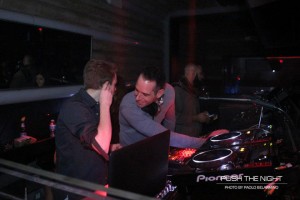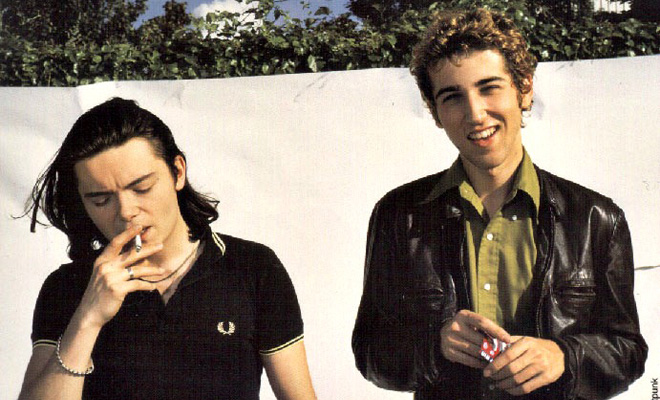Is there a fine line between cheating your musical audience out of an experience and educating them on something new? Has our culture bred entertainment consumers that want to hear what they want, when they want, to the point that everyone is their own DJ and are unappeasable when they go out for music?
Let’s take an example. In the wake of Daft Punk’s sweep of the 2014 Grammy Awards, how would you feel if you spent $75 on a ticket to see them live… and they didn’t rock “Get Lucky”? Some people (myself included) would be greatly relieved to not hear it for the ten thousandth time… but the vast majority would be asking for their money back. How about if you scored front-row seats to hear Lorde play to an intimately small audience… but she didn’t do “Royals”? Again we would have to deduce that most people would slump out of the room disappointed.
But what about Lorde? The song “Royals” was originally intended as a free giveaway to draw attention to her other songs, now she had to play it yet again at the Grammys. Do you really think Lorde wants to play that song for the ten thousandth time, either? The answer is hell no. She hates that song already. Even if an artist’s song has been very very good to them financially and professionally, they quickly get tired of parroting it out on a nightly basis, and want to move on to newer material. This is what makes them, well, artists. And they’re only human.
Besides, as their managers tell them, the quickest way to obscure into one-hit-wonders is by relying too heavily on one successful release and not backing it up right away with new, stronger releases. In 2013 think Pharrell (boss) and Psy (fail).
So let’s get back to the original point. Our current musical culture, fueled by instant-gratification music services like Spotify, has been enabled to hear anything we want anytime we want. So if we narrow the scope, how does this affect the mainstream electronic DJ experience? It’s made big-name DJs into musical brand names that are tightly defined into narrow musical sub-genres.
If you want to hear dubstep, go hear Skrillex.
If you want some poppy house, get David Guetta tickets.
Big-room progressive? Swedish House Mafia.
And if those guys wind up playing something completely different than what they’re know for? Screw them. And you’re never buying tickets again.
 But what about in the underground? Don’t we pay our money to have true-blue devil-may-care DJs break new music and take us on psychedelic journeys, schooling us as they go? This may be changing as well. Take a recent 2014 Brooklyn performance of the Stanton Warriors, the pioneering UK duo that has consistently defined their ultra-underground brand of ‘funky breakbeat’ genre for over a decade. Their show did not disappoint. They delivered on their brand and delivered a massively satisfying sub-bass infused breakbeat set to a sweating throng of Burning Man acolytes and local technorati. The very next night, Los Angeles phenom Goldroom played to a packed house at a weekend-y Manhattan nightclub. The club was expecting his signature ‘tropical house’ or ‘California dance’ style of melodic 115 bpm chilled-out bliss… and instead got a generic soulless blast of commercial 128 bpm progressive house that could have been heard (done better) at nearby Pacha. People were walking out. “This isn’t a Goldroom set…”.
But what about in the underground? Don’t we pay our money to have true-blue devil-may-care DJs break new music and take us on psychedelic journeys, schooling us as they go? This may be changing as well. Take a recent 2014 Brooklyn performance of the Stanton Warriors, the pioneering UK duo that has consistently defined their ultra-underground brand of ‘funky breakbeat’ genre for over a decade. Their show did not disappoint. They delivered on their brand and delivered a massively satisfying sub-bass infused breakbeat set to a sweating throng of Burning Man acolytes and local technorati. The very next night, Los Angeles phenom Goldroom played to a packed house at a weekend-y Manhattan nightclub. The club was expecting his signature ‘tropical house’ or ‘California dance’ style of melodic 115 bpm chilled-out bliss… and instead got a generic soulless blast of commercial 128 bpm progressive house that could have been heard (done better) at nearby Pacha. People were walking out. “This isn’t a Goldroom set…”.
So what does this mean for the underground? Should DJs sometimes check their wild creative musings… and cater to the desires and preconceived notions that their dance floors expect? The answer has perhaps evolved towards “yes”.
 Underground DJs should honor the musical brands they have built and deliver on the promise. If they feel like letting their creative spirits fly – and they should – try using different aliases for different musical experiences (see Oliver Lieb – who had over a dozen monikers – or more recently, Eric Prydz aka AxEr aka A&P Project aka Cirez D aka Dukes of Sluca akaGroove System etc etc). A DJ’s brand name should reflect a consistent feeling that is immediately associated with their work, so they won’t let down their finicky audiences who spend time and money to hear them. You wouldn’t buy wingtips from Nike, or track shoes from Cole-Haan…they found what they do well, and that’s why their customers come to them.
Underground DJs should honor the musical brands they have built and deliver on the promise. If they feel like letting their creative spirits fly – and they should – try using different aliases for different musical experiences (see Oliver Lieb – who had over a dozen monikers – or more recently, Eric Prydz aka AxEr aka A&P Project aka Cirez D aka Dukes of Sluca akaGroove System etc etc). A DJ’s brand name should reflect a consistent feeling that is immediately associated with their work, so they won’t let down their finicky audiences who spend time and money to hear them. You wouldn’t buy wingtips from Nike, or track shoes from Cole-Haan…they found what they do well, and that’s why their customers come to them.
This same concept applies when we narrow the scope even further. Let’s take the musical microcosm of New York City. This is a town where people know what they want… and get pissed when they don’t consistently get what precisely what they came for. Take food for instance.
Good street meat? Rafiqui’s.
Awesome steak? Peter Luger’s.
Pizza? Artichoke Basille’s.
Pastrami? Katz’s.
You wouldn’t expect good vegan grub at Katz’s… it’s not “what they do”. In the same way, in a city with so many musical choices in underground electronica (real-life Spotify!), a savvy nightlife goer wants to know exactly what they are getting into musically.

If you go to Tao, Buddakan, or Hakkasan these days, you know you are going to catch one of the silky smooth DJ sets from veteran New York scenester Timka, who will vacillate between UK garage to proper nu-disco and deep-house. “I’ve been playing underground since before it was called ‘underground’, and deep-house will always be my first love” says the ever-stylish Vancouver transplant. “I don’t play music to please the masses – I play to discerning listeners who appreciate the same soulful deep sounds that I grew up on”.
 Same goes for the suave James Halpin who can frequently be found on opening DJ duty at notable clubs like Cielo, Le Bain, and Open House. He brings sparkling yet understated progressive and tech-house beats that take a disciplined uphill journey of growing inertia to flawlessly set up the headliner after him. “I seek out music of any genre that describes what I am experiencing and how I am feeling at that point and time; my goal is to establish a genuine connection with others by expressing myself and not holding back” explains the spinner. “I focus on psychedelic/mind altering forms of music. That is the common thread. That is what people should expect from me”.
Same goes for the suave James Halpin who can frequently be found on opening DJ duty at notable clubs like Cielo, Le Bain, and Open House. He brings sparkling yet understated progressive and tech-house beats that take a disciplined uphill journey of growing inertia to flawlessly set up the headliner after him. “I seek out music of any genre that describes what I am experiencing and how I am feeling at that point and time; my goal is to establish a genuine connection with others by expressing myself and not holding back” explains the spinner. “I focus on psychedelic/mind altering forms of music. That is the common thread. That is what people should expect from me”.
 Or try a soundtrack by trendsetting duo and Nurvous Records darlings Grass Is Greener at the recently and tragically defunct bastion of Manhattan underground nightlife, Sullivan Room. Comprised of longtime DJ/producers EBAR and SR Serge, the pair have been skyrocketing up the music charts on Beatport and other retail outlets by pushing a sound that pulls 80’s influences into 2014 by solidly fusing them into the chillwave, nu-disco, and deep-house genres. “We make sure to deliver a consistent vibration in our productions and DJ sets,” says EBAR. “We don’t want to confuse our listeners. Our sound has to be recognizable as our sound. People need to know that when they come back for seconds, it will be just as good or better than the first time – and in the same flavor”. Adds SR Serge, “If we feel like DJing or producing music that’s not the specific sound we set out for, we can just do it under different pseudonyms”.
Or try a soundtrack by trendsetting duo and Nurvous Records darlings Grass Is Greener at the recently and tragically defunct bastion of Manhattan underground nightlife, Sullivan Room. Comprised of longtime DJ/producers EBAR and SR Serge, the pair have been skyrocketing up the music charts on Beatport and other retail outlets by pushing a sound that pulls 80’s influences into 2014 by solidly fusing them into the chillwave, nu-disco, and deep-house genres. “We make sure to deliver a consistent vibration in our productions and DJ sets,” says EBAR. “We don’t want to confuse our listeners. Our sound has to be recognizable as our sound. People need to know that when they come back for seconds, it will be just as good or better than the first time – and in the same flavor”. Adds SR Serge, “If we feel like DJing or producing music that’s not the specific sound we set out for, we can just do it under different pseudonyms”.
Take a look at the newly opened Williamsburg electronica-focused nightclub TBA. Co-proprietor Wolf Konstant has helped foster a very pure program of strictly underground electronica every night the venue is open. “It all comes down to the music. We are in this business because we love the music, and we owe it to our customers and ourselves to be true to the music. Otherwise why bother?”.
So there we have it – the evolution of the underground DJ into a brand that consistently delivers on its promise and musical ethos. Will this rob the DJ of their power to meander and introduce new ideas that are beyond what they’re known for? Perhaps, to an extent. But in the end the trend may create more meaningful ways for listeners to cut down on the noise, discover exactly what they like, and know where and how to soak it in.




